language

Shermer and Fridland discuss: Okay, Boomer language • accents • ChatGPT • gender pronouns • gender differences in language use • forensic language analysis • evolution of language • why children learn language naturally but must be taught to read and write • literature, film, and TV’s influence on language use • cancel culture and taboo language • language and identity politics • y’all, contractions, and other language shortcuts • tracking human migrations by language, and vice versa • Fargo,…
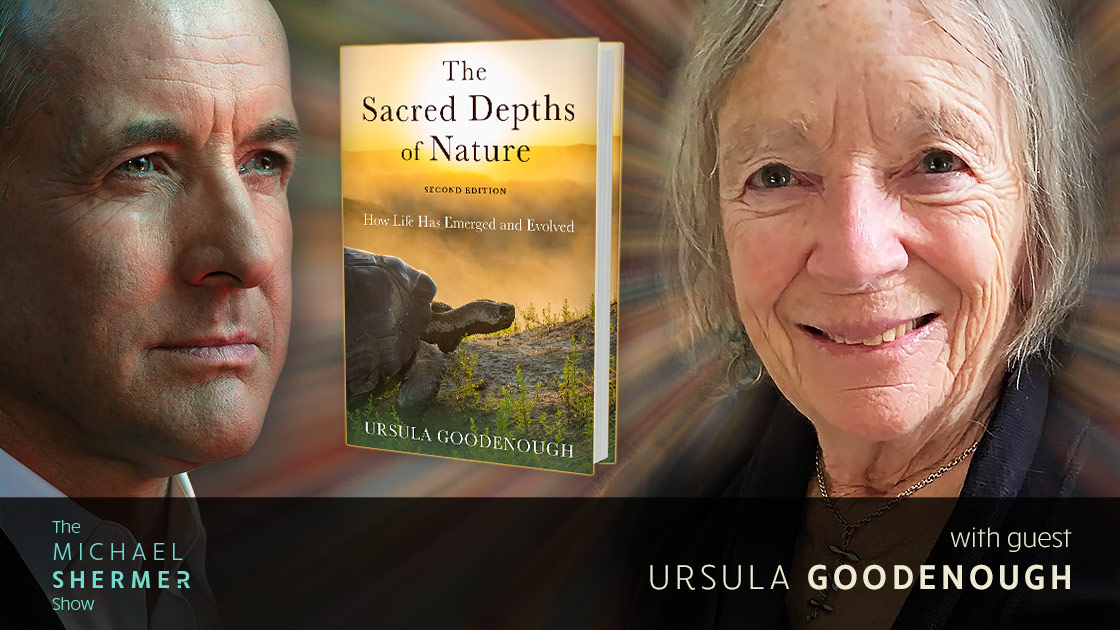
Shermer and Goodenough discuss: origins of her personal beliefs • origins life, RNA, DNA, consciousness, language, morality • myths and religions • what it means to be “religious” • religious naturalism • where the laws of physics came from • why the universe seems so strange • chance and evolution • fine tuning of the cosmos • autocatalysis and emergence • purpose of religion • ethics and morality without religion.
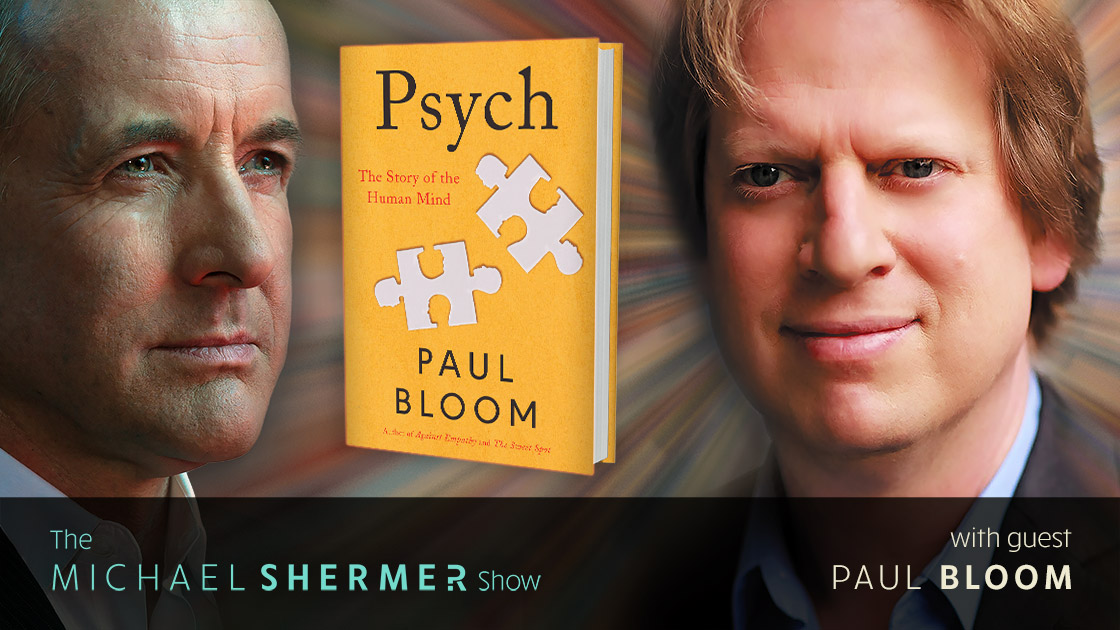
How does the brain — a three-pound gelatinous mass — give rise to intelligence and conscious experience? Was Freud right that we are all plagued by forbidden sexual desires? What is the function of emotions such as disgust, gratitude, and shame? Renowned psychologist Paul Bloom answers these questions and many more in this conversation based on his riveting new book about the science of the mind: Psych.

Shermer and Berent discuss: nature/nurture genes/environment biology/culture • language and innate knowledge • what babies are born knowing • how people reason about human nature • dualism • essentialism • theory of mind • the nature of the self • innate beliefs in the soul and afterlife • free will and determinism • how people think about mental illness and disorders • how one’s theory of human nature effects one’s attitudes about nearly everything.
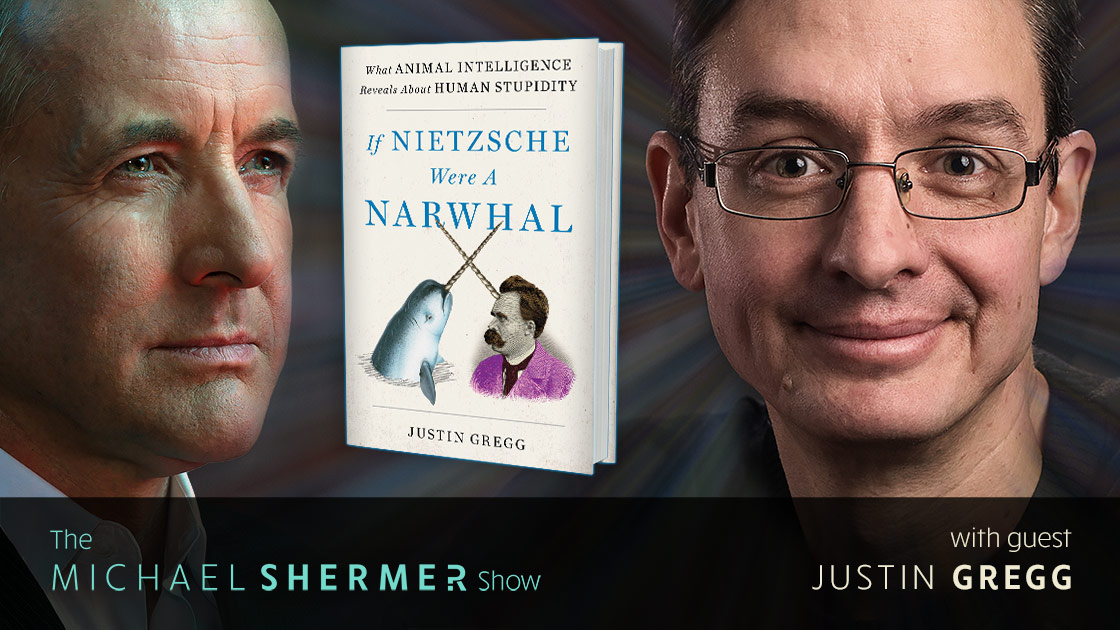
Shermer and Gregg discuss: • intelligence • stupidity • dolphins • artificial intelligence • language • rationality • moral systems • comparative thanatology • “causal inference” vs. “learned associations” • humans as “why specialists” • death awareness • why narwhals do not commit genocide • “prognostic myopia” • our “shortsighted farsightedness” as “an extinction-level threat to humanity” • consciousness and sophisticated consciousness: animals and humans • free will • determinism • pleasure vs. happiness vs. purposefulness.
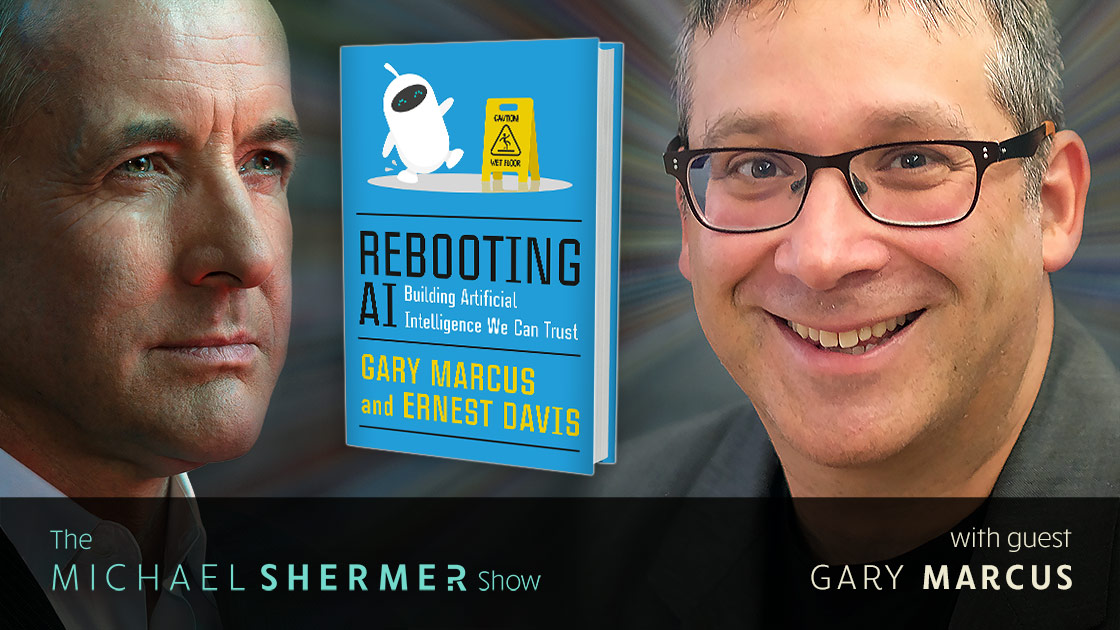
Shermer and Marcus discuss: why AI chatbot LaMDA is not sentient • “mind”, “thinking”, and “consciousness”, and how do molecules and matter give rise to such nonmaterial processes • the hard problem of consciousness • the self and other minds • How would we know if an AI system was sentient? • Can AI systems be conscious? • free will, determinism, compatibilism, and panpsychism • language • Can we have an inner life without language? • How rational or irrational…
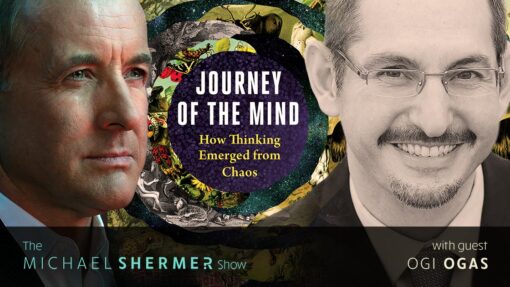
Michael Shermer speaks with computational neuroscientist, Ogi Ogas, about his unified account of the mind that explains how consciousness, language, self-awareness, and civilization arose incrementally out of chaos, and how leading cities and nation-states are developing “superminds,” and perhaps planting the seeds for even higher forms of consciousness.
Michael Shermer speaks with computational neuroscientist, Ogi Ogas, about his unified account of the mind that explains how consciousness, language, self-awareness, and civilization arose incrementally out of chaos, and how leading cities and nation-states are developing “superminds,” and perhaps planting the seeds for even higher forms of consciousness.

In episode 192, Michael speaks with husband-and-wife team Lesley Newson and Peter Richerson about the deep history of humankind discussed in their book, A Story of Us, in which they present this rich narrative and explain how the evolution of our genes relates to the evolution of our cultures.
In episode 192, Michael speaks with husband-and-wife team Lesley Newson and Peter Richerson about the deep history of humankind discussed in their book, A Story of Us, in which they present this rich narrative and explain how the evolution of our genes relates to the evolution of our cultures.
In Science Salon # 79 Michael Shermer speaks with former dean of Yale Law School Anthony Kronman about his new book The Assault on American Excellence; PLUS psychologist John Glynn explores one of the most perplexing aspects of human behavior: why does anyone die by suicide?
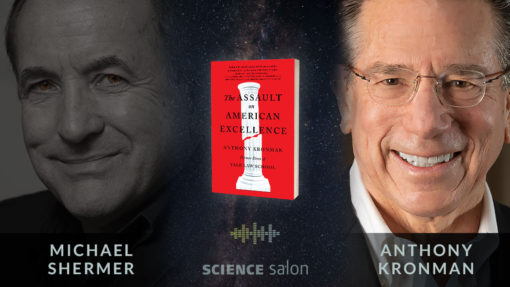
The former dean of Yale Law School argues that the feverish egalitarianism gripping college campuses today is out of place at institutions whose job is to prepare citizens to live in a vibrant democracy. Where many see only the suppression of free speech, the babying of students, and the drive to bury the imperfect parts of our history, Kronman recognizes in these on-campus clashes a threat to our democracy.

In Science Salon # 69 eminent psychologist Dr. Barbara Tversky offers a major new theory of human cognition: movement, not language, is the foundation of thought.
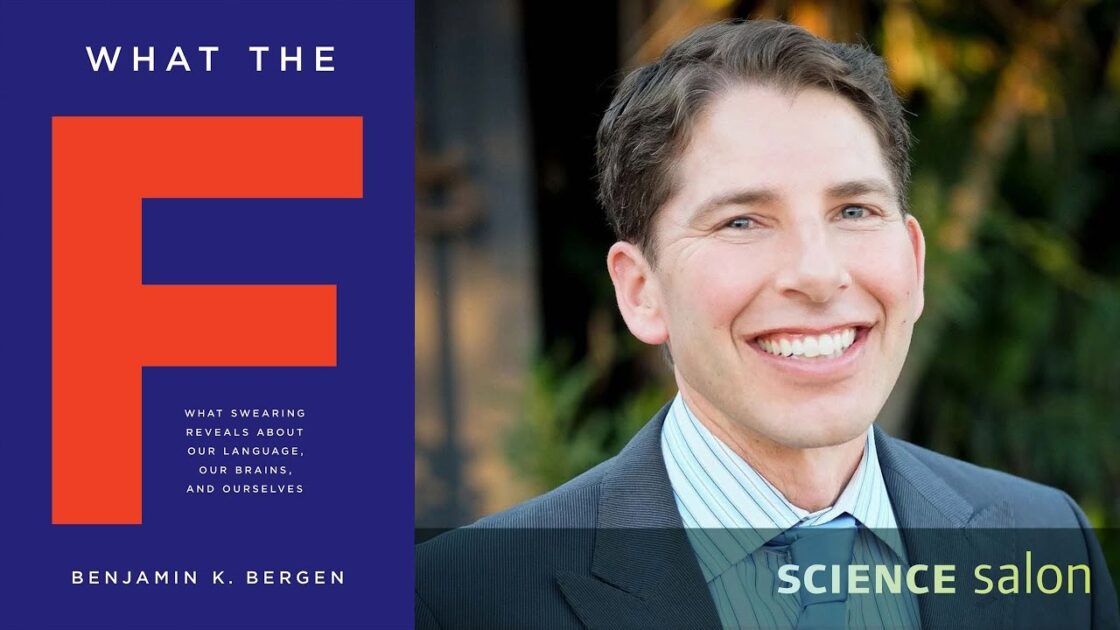
In this lecture based on his new book, professor of cognitive science at the University of California, San Diego, Dr. Benjamin Bergen, illuminates the controversial and complex nature of profanity and its relationship on our culture.
In this week’s eSkeptic, Dr. Clive Wynne, a psychology professor at the University of Florida and the author of the authoritative textbook on the subject of animal cognition, revisits the debate about whether animals have language.
One of the most influential thinkers of our time, Dr. Steven Pinker marries two of the subjects he knows best — language and human nature — into his new book on how words can help explain our nature (for example, what swearing reveals about our emotions or what innuendo discloses about relationships). The author of the bestselling books The Language Instinct, How the Mind Works and Blank Slate, Pinker reveals how our use of prepositions and tenses taps into peculiarly…





















